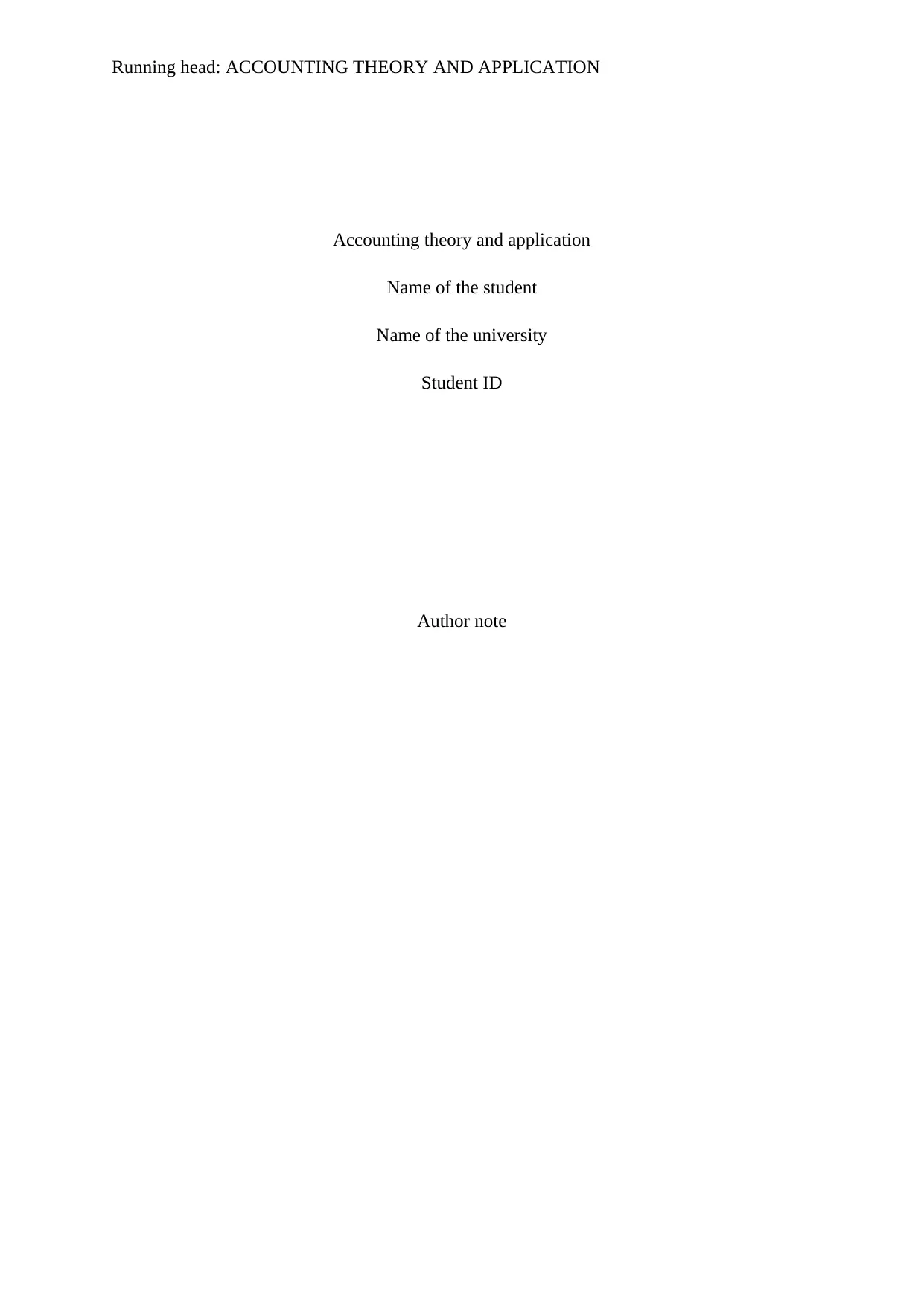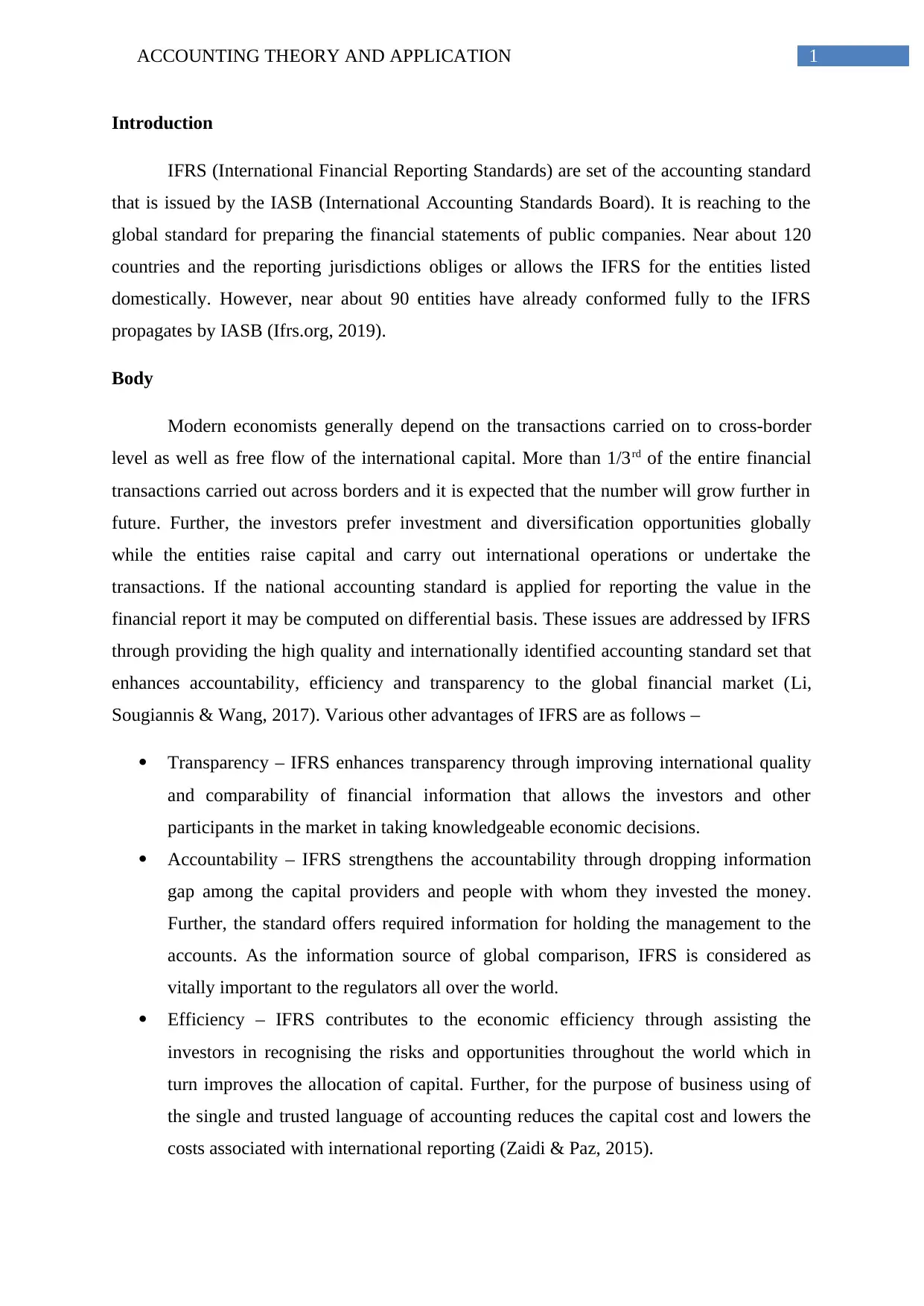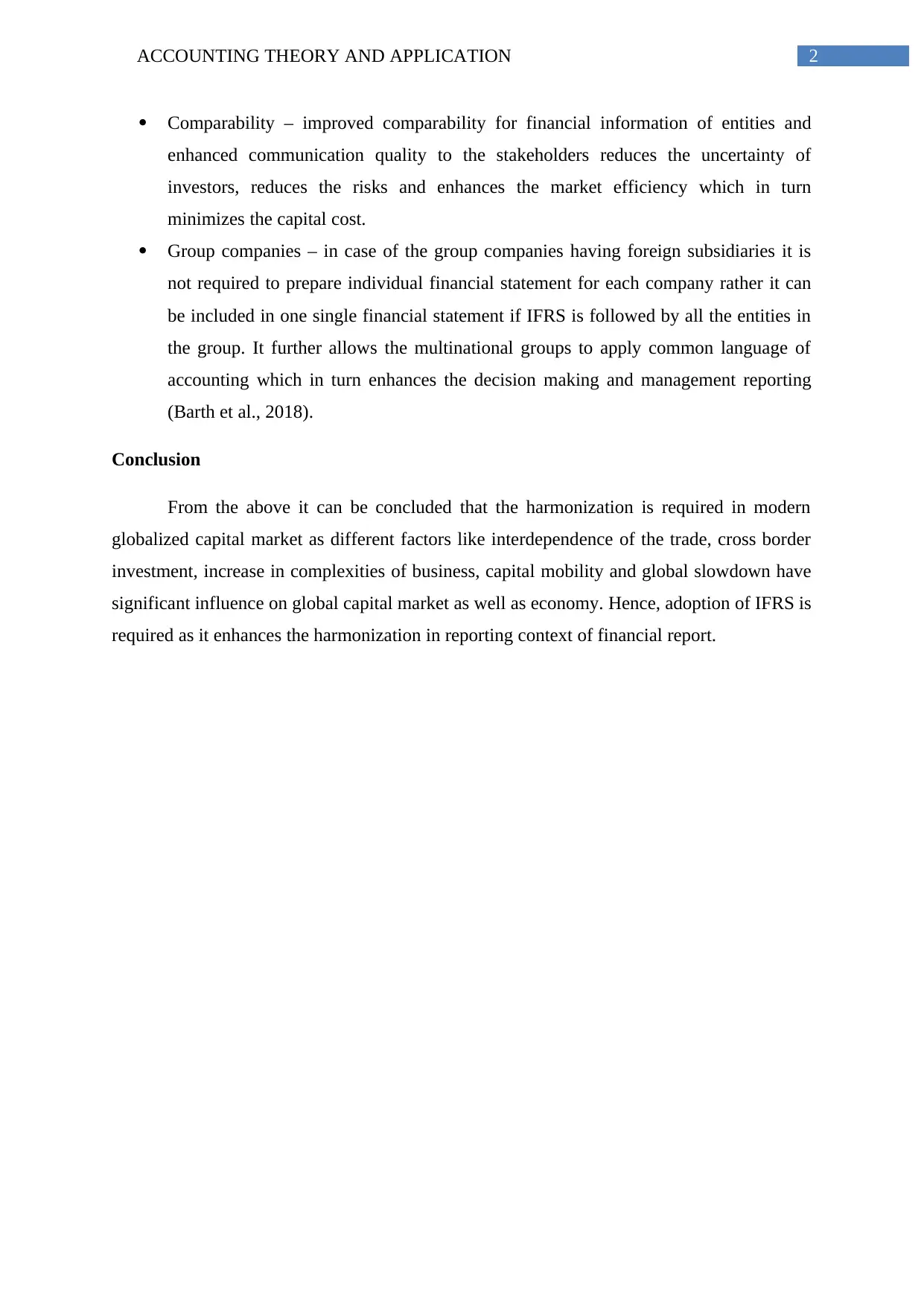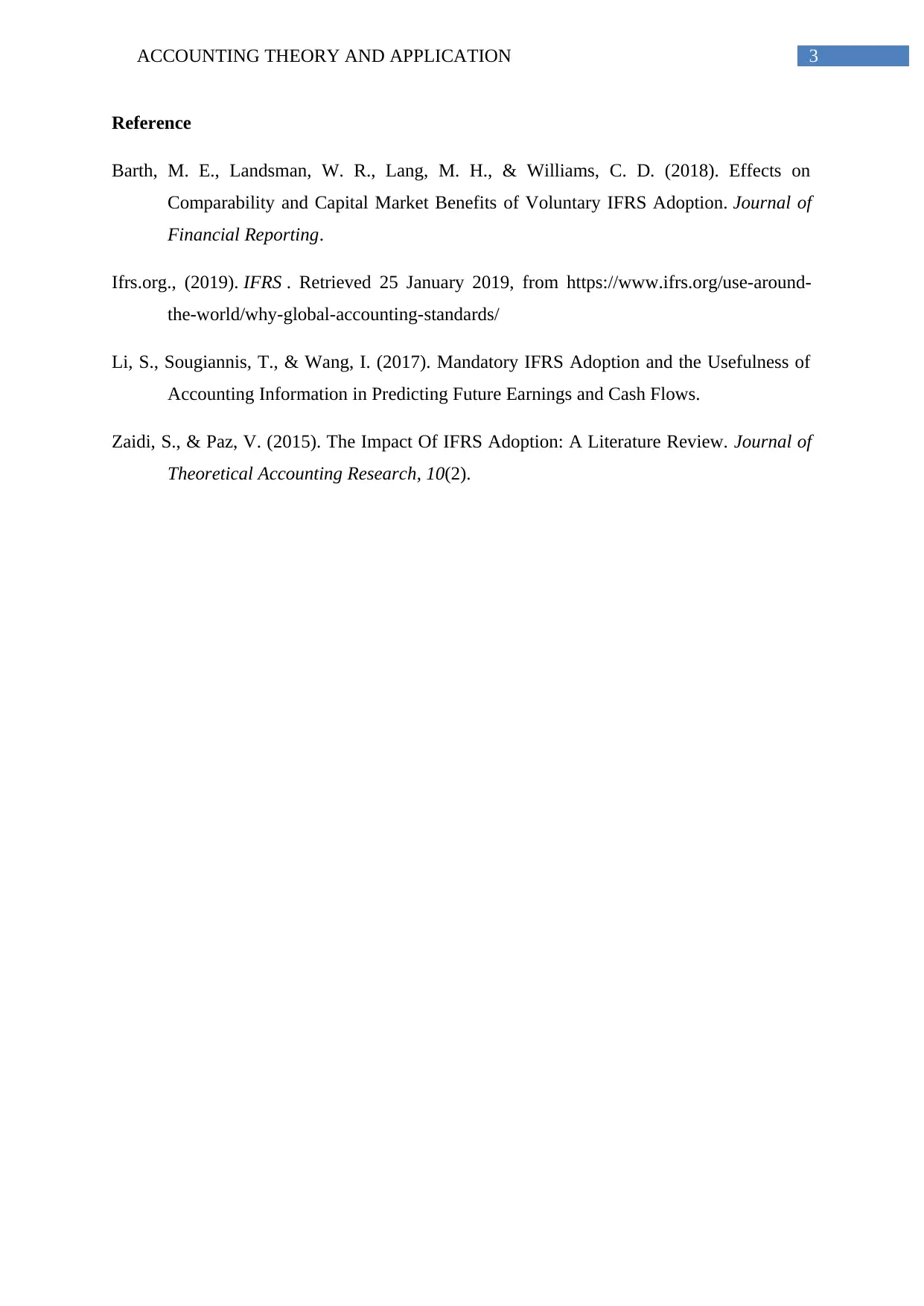Advantages of IFRS: Impact on Globalization of Capital Markets
VerifiedAdded on 2023/04/24
|4
|741
|359
Essay
AI Summary
This essay discusses the advantages of International Financial Reporting Standards (IFRS) in the context of the globalization of capital markets. It highlights that IFRS, issued by the International Accounting Standards Board (IASB), serves as a global standard for preparing financial statements for public companies. With approximately 120 countries obliging or allowing IFRS, and around 90 conforming fully, the essay emphasizes IFRS's role in addressing issues arising from cross-border transactions and the free flow of international capital. The advantages of IFRS include enhanced transparency, strengthened accountability, improved economic efficiency, and increased comparability of financial information. The essay concludes that the harmonization provided by IFRS is essential in the modern globalized capital market due to factors like interdependence of trade, cross-border investment, and capital mobility, making its adoption crucial for enhancing financial reporting.
1 out of 4











![[object Object]](/_next/static/media/star-bottom.7253800d.svg)